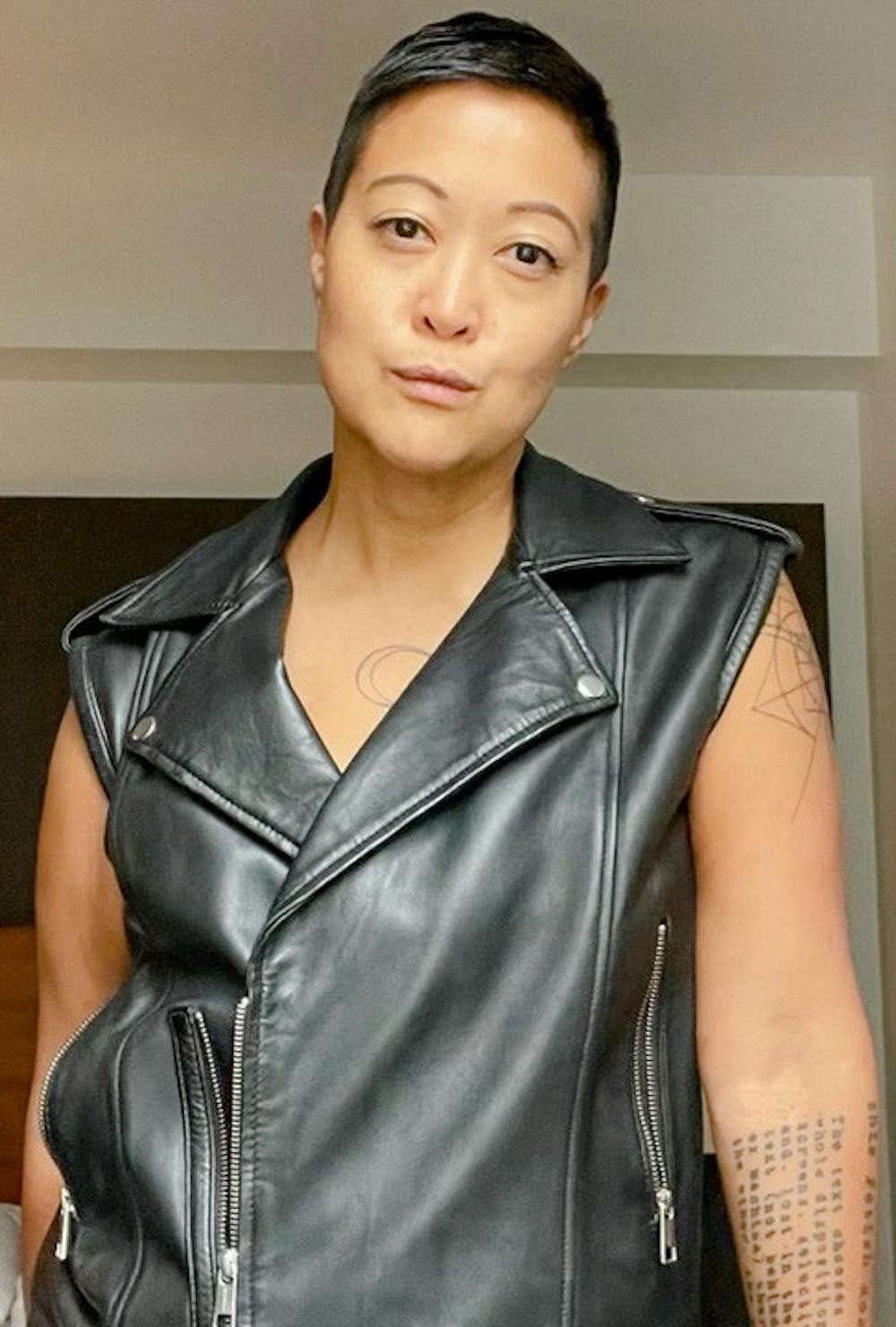Yin Q, the American Studies department’s Spring 2023 Asian American artist-in-residence, likes to think of themself as “not a leader but a gatherer.”
Q, who is a writer, producer, director and sex work activist, plans to use their new position to bring “people together” by working in conjunction with organizations Red Canary Song and Kink Out.
“I’m bringing people to Brown to have conversations with me, because my work does not exist in a void,” they said. “My work is really with community.”
Q is an organizer at Red Canary Song, a collective of Asian and migrant sex workers, as well as a founder of Kink Out, a production group of queer, leather art and activism events that “center BIPOC representation,” she said.
Connecting members of Red Canary Song to Brown’s campus is particularly important to Q, as many of the women the collective works with have not had previous access to academia, they explained.
These women are “so hardworking and so smart,” and “bringing their work into a space” like the University bridges the gap between academia’s focus on subjects rather than “the people themselves,” she added.
Student program coordinators, who determine the artist-in-residence after soliciting community feedback, kept the resources offered with the position in mind during the selection process. “This is a huge opportunity to bring someone to an elite institution like Brown — and for Brown students to be able to engage with someone who they might not normally” engage with, said student coordinator Ren L[i]u ’23.
“Because this (position offers) a lot of money, we were hoping … it would be a redistribution of resources,” L[i]u added. “Knowing that the residency is shared by Q with the collectives” and that the money would financially benefit the communities of Red Canary Song and Kink Out encouraged their decision.
L[i]u also thought Q’s work made them a good fit “for conversations that were going on already among Asian diasporic and Asian American communities” on campus, including discussions about gender-based and sexual violence.
Q has organized a wide range of events for the spring semester, including a Valentine’s Day special workshop “Introduction to Rope/Shibari” and a conversation with Empress Wu, a social media coordinator and digital archivist for arts nonprofits, on “Sadomasochism, Power, Blood and Money.”
Upcoming events in March include a second Rope workshop and a screening of the documentary film “Fly in Power,” which explores issues among Asian migrant massage and sex workers, Q said.
Q’s goal is to expose students to larger conversations about topics like consent and kink. Given the glorification of abuse in some online representations of sadomasochism, the information present online today can be both intimidating and damaging “to how someone thinks about conducting kink in their relationships and communities,” they explained.
They emphasized the importance of “digging deeper into consent,” beyond “tutorials that were given during orientation,” which are aimed at perpetrators and victims but do not address how to “explore our own interests in a safe way, (taking) into consideration the power dynamics that are inherent in everyday relationships.”
For femme bodies, queer bodies and trans bodies, “consent is too soft a word,” Q said.
Q’s workshops also aim to debunk some of the misrepresentations of kink in popular media. When doing their workshops, “whether I’m teaching something like rope bondage or something like flogging or spanking, I really let people know that this is about sensation,” she said. “It’s about really enjoying sensations and the cusp of sensations from pleasure and pain or power dynamics.”
One of the events Q is looking forward to most is a program on digital sexuality in April, which will be centered around “how to stay sexy online, but also how to protect yourself,” they said.
Q’s analysis of “censorship of sex work in digital spaces … is coming at a really critical political moment because of federal policies like the Stop Enabling Sex Traffickers Act and the Fight Online Sex Trafficking Act that are really increasing surveillance and criminalization of sex work in digital spaces,” said graduate coordinator Mark Tseng Putterman MA’20 GS.
“I hope that students, through participating in these programs, can come away with just a more expansive and creative idea of what Asian American art ... can do and how that might play into their own creative practices,” Tseng-Putterman said.





